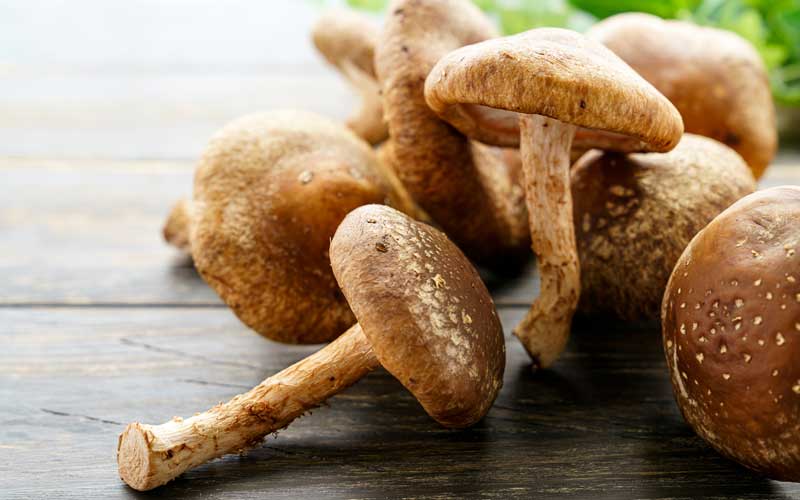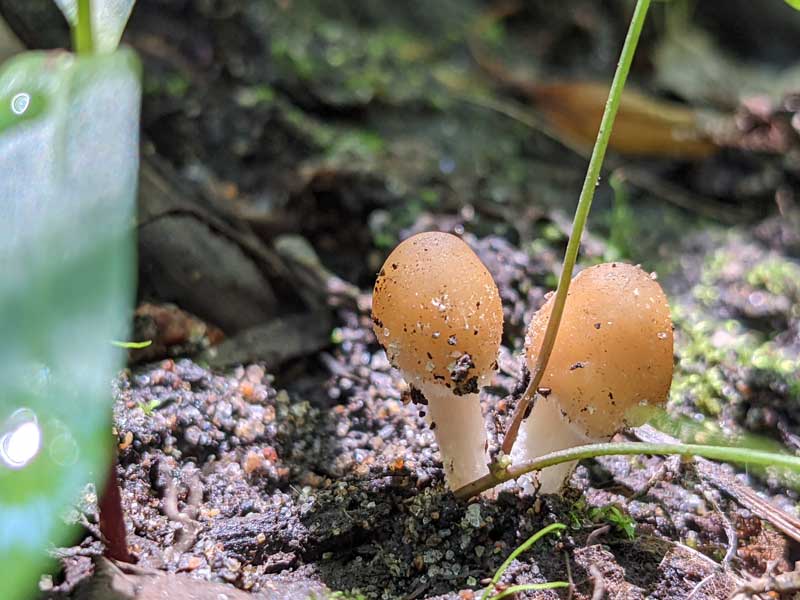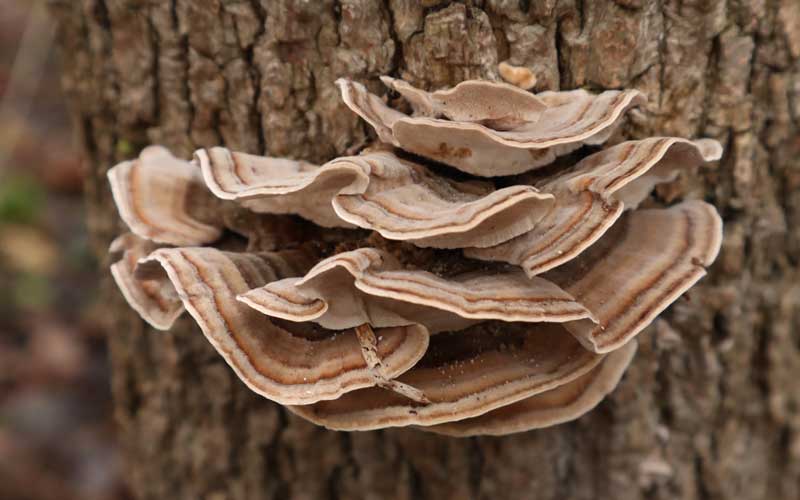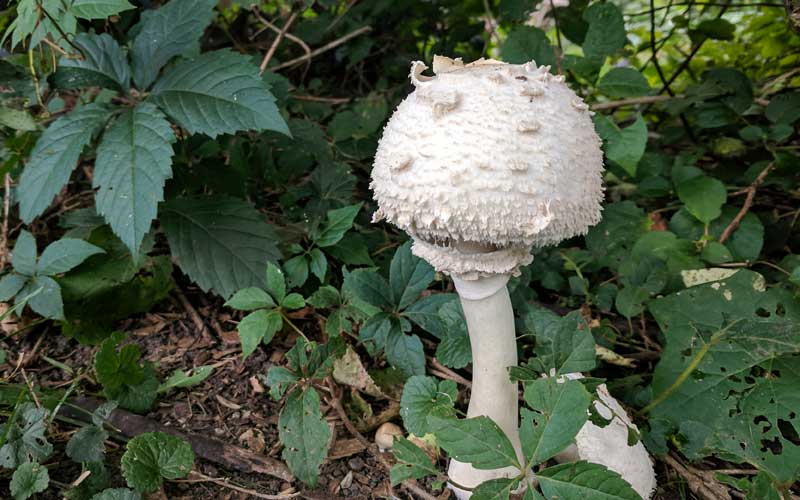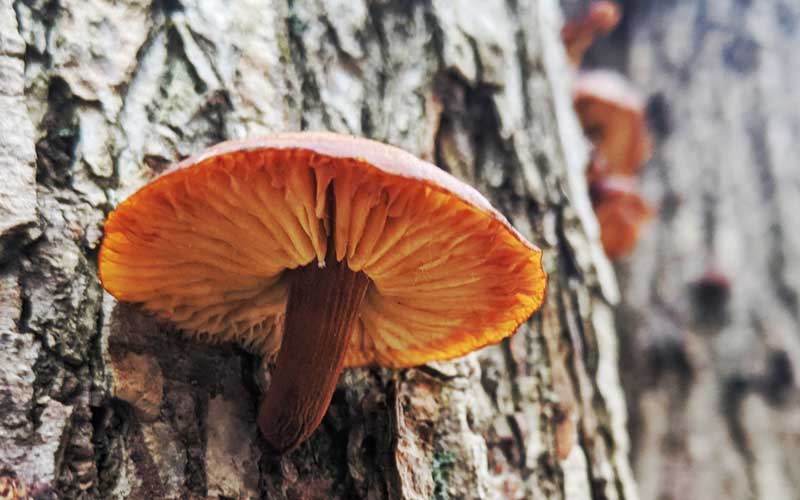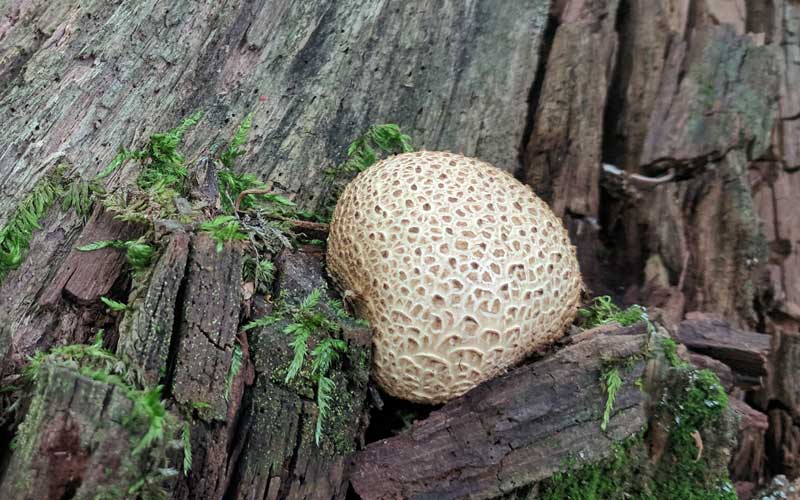Shiitake Mushrooms: They're a culinary delight and potent superfood.
So many mushrooms with medicinal properties look funny — hardly like mushrooms at all. And often they have a woody, tough texture or bitter flavor which makes them difficult to eat.
Not true with Shiitake mushrooms.
These tasty little gems are readily available in your grocery store — either fresh or dried — and a welcome addition to a wide variety of meals.
Even better, Shiitake mushrooms taste good and are good for you.
Their nutritional benefits and active compounds.
A serving of Shiitake mushrooms — about 15 grams — delivers an array of vitamins and minerals including several of the B vitamins, vitamin D, copper, zinc, and selenium.
That same serving is also rich in polysaccharides, terpenoids, and sterols, many of which can work in the body to support your overall health.
In one review of the bioactive compounds contained within Shiitake mushrooms, researchers described extracts and pure compounds as exhibiting “antibacterial, antifungal, cytostatic, antioxidant, anticancer, and immunomodulatory activity.”
In layman’s terms, Shiitake mushrooms contain components that fight infection and unwelcome fungal invaders, they inhibit cell growth (good for combatting tumors), they protect tissues from free radical damage, and they help to regulate your immune system.
How’s that for dinner!
Early testing — mostly in test tubes and on animals — suggests that Shiitake mushrooms may have an array of useful health applications.
Shiitake mushrooms are good for your oral health.
If you’re prone to cavities or worried about your next visit to the dentist, you might want to start eating more Shiitake mushrooms.
In cell culture tests, Shiitake extract disrupted the process that forms cavities on the teeth. And in animal tests, rats fed a cavity-promoting diet were less likely to get cavities if Shiitake extract was added to their feed.
In a small clinical trial, scientists explored the potential for Shiitake mushrooms to prevent cavities and gingivitis. They found that a Shiitake-based mouthwash reduced the plaque formations associated with cavities and reduced the bacteria associated with gingivitis.
Poor oral health has been linked to higher rates of heart disease, so while Shiitake’s benefits to oral health might seem mundane, they could offer far-reaching benefits to your overall health.
Good for your heart, too…
Poor diet, stress, and a sedentary lifestyle can lead to atherosclerosis. This is a condition where cholesterol and fats form plaques on your artery walls. When you have atherosclerosis, you’re at high risk for a heart attack or stroke.
Making Shiitake mushrooms a part of your regular diet may help to protect you against developing atherosclerosis. In an animal study, researchers divided rats into five groups. One group was fed a low-fat diet, one a high-fat diet, one a high-fat diet plus Portobello mushrooms, one a high-fat diet plus Shiitake mushrooms, and one a high-fat diet plus a mix of mushrooms.
At the end of the experiment, the researchers measured the body composition of the mice. They looked for signs of plaque formation in the aortas. And they studied the blood lipid levels of each group.
They found that the mice fed on Shiitake mushrooms had fewer plaque build-ups in their aortas than mice fed a mix of mushrooms or just a high fat diet. The “Shiitake” mice also had up to 48% lower adhesion molecule counts (a contributor to heart disease) than all the other groups including the group eating a low-fat diet. The mushroom-eating mice also maintained a healthier body weight and lower percentage body fat than the control groups.
One of the key cholesterol-fighting compounds in Shiitake mushrooms is eritadenine. In a study designed to measure the amount of eritadenine in Shiitake mushrooms, researchers came to the conclusion that extracts or dried concentrates of Shiitake may contain enough eritadenine to have a therapeutic effect on high cholesterol levels. Eventually this could lead to a natural medicine capable of safely treat one of the root causes of heart disease.
Look forward to a healthier immune system.
Shiitakes may also help support your immune health and lower chronically high levels of inflammation… which means they may help defend you against the diseases of aging.
In a small study on how mushrooms affect immune response in people, researchers found a number of positive changes from eating Shiitake mushrooms.
In this study, researchers had healthy individuals add 5 to 10 grams of Shiitake mushrooms to their daily diet. Researchers took blood at the outset of the study and again after four weeks.
Four weeks of eating mushrooms increased T-cells by 60% and doubled the number of natural killer T cells. These types of cells play a key role in immune response. In addition to increasing these cells in number, the cells also appeared to work more effectively at the end of the study compared to the beginning.
There were also signs of improved gut immunity and lower inflammation levels.
Overall, that’s a really good result from eating mushrooms!
It doesn’t take a lot…
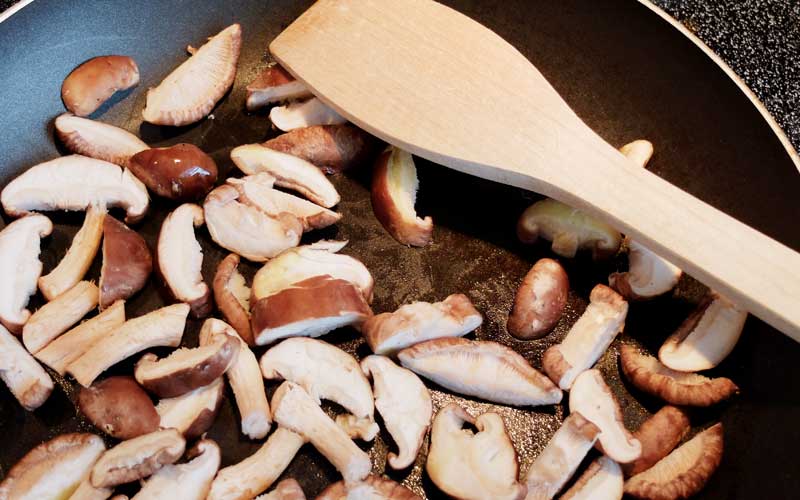 Sliced Shiitake mushrooms being sautéed in a pan with a little oil.
Sliced Shiitake mushrooms being sautéed in a pan with a little oil.A serving of Shiitake mushrooms is just 15 grams. In the study on immune response, subjects were eating less than that a day and seeing great results.
Now, the studies above are small. A lot more research is needed.
But that doesn’t mean you need to wait for the results to come in. Shiitakes are a food — and a delicious one at that. So, unless you have a mushroom allergy, they are safe to eat… and you can safely enjoy the health benefits – healthier gums, lower cholesterol, lower inflammation, and a stronger immune system.
There are probably some Shiitake mushrooms in your grocery produce department right now. So what are you waiting for?
Related Topics:
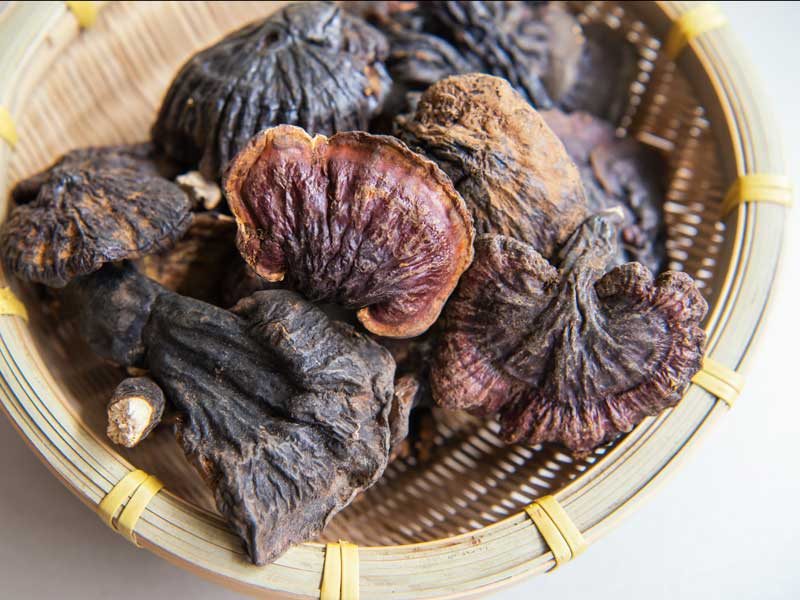
Medicinal mushrooms have been used by healers for thousands of years.
Medicinal mushrooms and fungi offer a variety of health benefits, many of them tied to supporting your natural immune system. Read the full article...
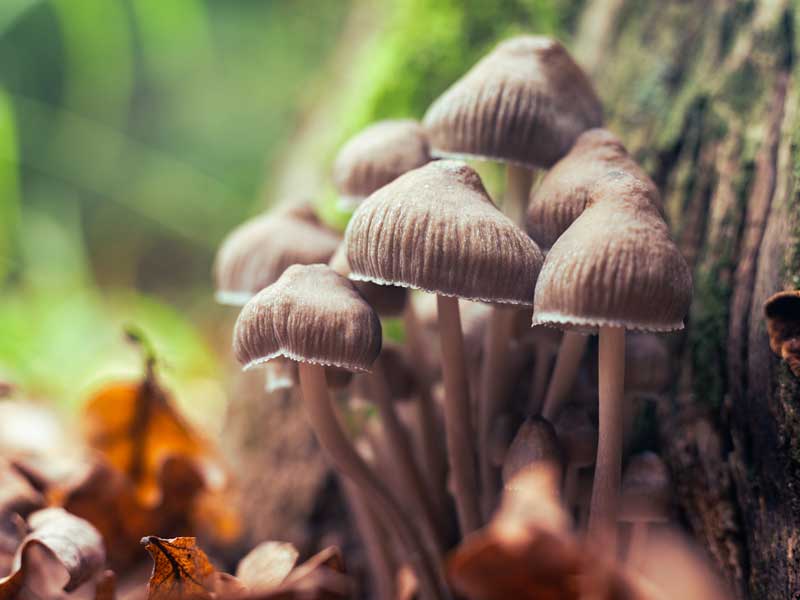
A brief history of magic mushrooms, and how they can improve our lives.
Magic mushrooms have played a role in the spiritual, psychological and mental health of people for millennia. Read the full article...
